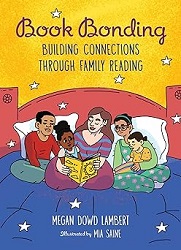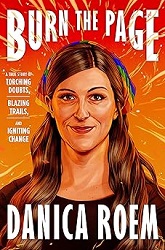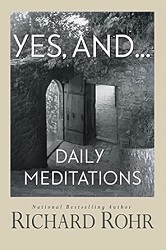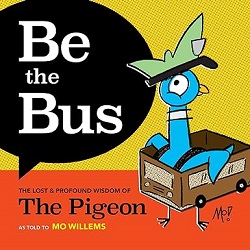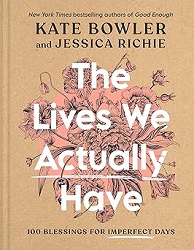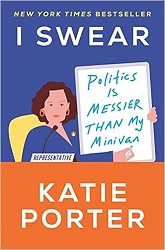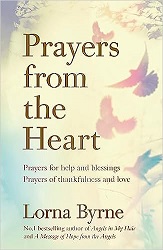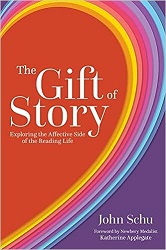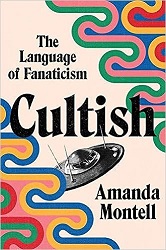 Cultish
Cultish
The Language of Fanaticism
by Amanda Montell
Harper Wave, 2021. 310 pages.
Review written August 8, 2023, from my own copy, signed by the author.
Starred Review
Last September, I was asked to speak at the Fall for the Book Festival at George Mason University on a panel about book banning. After my panel, I went to hear Amanda Montell and another author speak about cults. The talk was fascinating, and I purchased both books and got them signed. I didn’t mean to take so lomg to read it, but I had lots of library books checked out, too, and have been reading for award committees, and, well, I finally finished reading it. This is not a reflection on the book — I’d often intend to read just one chapter and instead read two or three. This is just a reflection on how I read nonfiction and don’t give enough priority to books I own. The book was amazing, and got me thinking about so many things.
Amanda Montell has a background in linguistics, and she takes a look at cults from this angle — looking at the language cults use to bring in followers, which she calls “Cultish.”
Before I go any further, let me talk about what constitutes a cult. I thought I knew all about them, because I studied them for a semester at my Christian high school. We defined them as any group that doesn’t acknowledge that Jesus is God. Hmmm. Maybe that definition isn’t adequate? Especially in view of what I learned watching the “Shiny Happy People” documentary series (I blogged about my reactions to that series with “Shiny Happy Childhood” posts.), realizing that Bill Gothard’s “Institute in Basic Youth Conflicts” that I attended many times as a child ended up having more and more cult-like characteristics.
Amanda Montell’s intro tells stories of two people each heavily involved in a different kind of group. She asks, “What do Alyssa’s and Tasha’s stories have in common?”
The answer: They were both under cultish influence. If you’re skeptical of applying the same charged “cult” label to both 3HO and CrossFit, good. You should be. For now, let’s agree on this: Even though one of our protagonists ended up broke, friendless, and riddled with PTSD, and the other got herself a strained hamstring, a codependent friend with benefits, and a few too many pairs of overpriced leggings, what Tasha Samar and Alyssa Clarke irrefutably share is that one day, they woke up on different sides of Los Angeles and realized they were in so deep, they weren’t even speaking recognizable English anymore. Though the stakes and consequences of their respective affiliations differed considerably, the methods used to assert such power — to create community and solidarity, to establish an “us” and a “them,” to align collective values, to justify questionable behavior, to instill ideology and inspire fear — were uncannily, cultishly similar. And the most compelling techniques had little to do with drugs, sex, shaved heads, remote communes, drapey kaftans, or “Kool-Aid” . . . instead, they had everything to do with language.
You might think that a book on cultish language would have a definition of cults. The author indeed went looking for one, but it turned out that different people think of different things when they use the term. Academics don’t like to use the word because of the pejorative context. I like what the author ended up with — a sense that there’s a continuum of cultish behavior. All humans crave belonging, being part of a community. On the benign end of the cultish spectrum is simple community, being part of a close-knit group. And it’s not tremendously difficult to leave (though of course there are always emotions involved).
On the opposite end of the spectrum are groups like Jonestown and Heaven’s Gate where people can’t leave even if they want to and follow the cult leader to their deaths. But most groups are somewhere in the middle of those two extremes.
I can’t stress enough how fascinating this book is. Amanda Montell covers religious cults, yes, but also multilevel marketing companies, fitness movements, political groups (yes, QAnon is mentioned), and so much more. It went so far beyond “groups who don’t agree with us about Jesus” and is just amazing to see how much these disparate groups have in common — particularly in their use of language.
One of the early chapters lays out the language tactics. Making people feel special and understood, often with love-bombing and inspirational buzzwords is how they begin. Conditioning follows, working over time, and the end result is coercion, convincing people to “act in ways that are completely in conflict with their former reality, ethics, and sense of self.”
She breaks down some of the techniques:
The first key element of cultish language? Creating an us-versus-them dichotomy…. The goal is to make your people feel like they have all the answers, while the rest of the world is not just foolish, but inferior. when you convince someone that they’re above everyone else, it helps you both distance them from outsiders and also abuse them, because you can paint anything from physical assault to unpaid labor to verbal attacks as “special treatment” reserved only for them.
This is part of why cults have their own jargon in the first place: elusive acronyms, insider-y mantras, even simple labels like “fiber-lab.” It all inspires a sense of intrigue, so potential recruits will want to know more; then, once they’re in, it creates camaraderie, such that they start to look down on people who aren’t privy to this exclusive code. The language can also highlight any potential troublemakers, who resist the new terms — a hint that they might not be fully on board with the ideology and should be watched.
Another technique came up over and over again:
There’s a companion tool to loaded language that can be found in every cultish leader’s repertoire: It’s called the thought-terminating cliché. Coined in 1961 by the psychiatrist Robert J. Lifton, this term refers to catchphrases aimed at halting an argument from moving forward by discouraging critical thought. Ever since I learned of the concept, I now hear it everywhere — in political debates, in the hashtag wisdom that clogs my Instagram feed. Cultish leaders often call on thought-terminating clichés, also known as sematic stop signs, to hastily dismiss dissent or rationalize flawed reasoning…. While loaded language is a cue to intensify emotions, semantic stop signs are a cue to discontinue thought. To put it most simply, when used in conjunction, a follower’s body screams “Do whatever the leader says,” while their brain whispers “Don’t think about what might happen next” — and that’s a deadly coercive combination.
But as when I learned to identify verbal abuse by reading Patricial Evans’ writing, identifying cultish language is more for yourself than it is for warning others:
Thought-terminating clichés are by no means exclusive to “cults.” Ironically, calling someone “brainwashed” can even serve as a semantic stop sign. You can’t engage in a dialogue with someone who says, “That person is brainwashed” or “You’re in a cult.” It’s just not effective. I know this because every time I witness it happen on social media, the argument comes to a standstill. Once these phrases are invoked, they choke the conversation, leaving no hope of figuring out what’s behind the drastic rift in belief.
So, this all gives you an idea of what you’ll find in this book. Along with this conversation about things cultish groups have in common, there are many, many case studies, examples from everywhere on the spectrum from innocent to harmful. Some extra time is given to Jonestown and Heaven’s Gate, but there are plenty of more everyday examples. She even talks about how social media is designed to “generate ideological sects, to pack people’s feeds with suggested content that only exaggerates what they already believe.”
After looking at so many types and degrees of cultish behavior and language, the author reminds us that we are made for community. We won’t avoid cult-like spaces altogether, nor do we want to.
Above all else, it’s important to maintain a vigilant twinkle in your eye — that tingle in your brain that tells you there’s some degree of metaphor and make-believe here, and that your identity comes not from one swami or single-minded ideology but from the vast amalgam of influences, experiences, and language that make up who you are. As long as you hang on to that, I think it’s possible to engage with certain cultish groups, knowing that at the end of the day, when you come home or close the app, strip off the group’s linguistic uniform, and start speaking like yourself again, you’re not all in.
So, yes, this is a valuable book. It gives perspective on how people get pulled into cultish groups and ways to check where the groups you’re part of (and we are all part of groups) fall on the health spectrum. But it can also give us compassion for those who find themselves in a difficult place. it’s not stupidity that gets them there, it’s design.
amandamontell.com
Buy from Amazon.com
Find this review on Sonderbooks at: www.sonderbooks.com/Nonfiction/cultish.html
Disclosure: I am an Amazon Affiliate, and will earn a small percentage if you order a book on Amazon after clicking through from my site.
Disclaimer: I am a professional librarian, but the views expressed are solely my own, and in no way represent the official views of my employer or of any committee or group of which I am part.
What did you think of this book?
